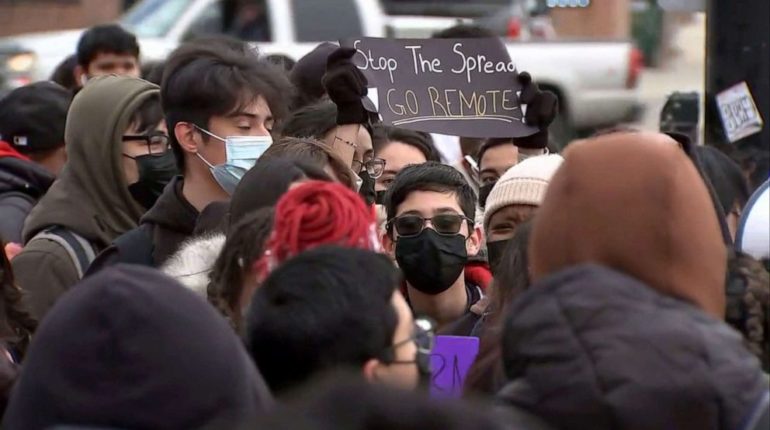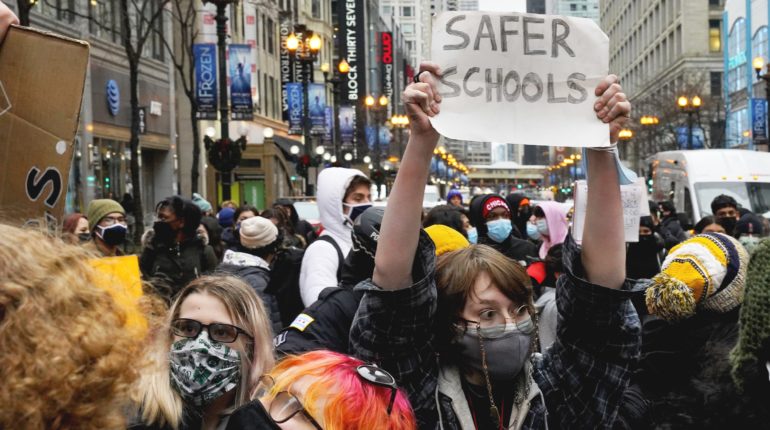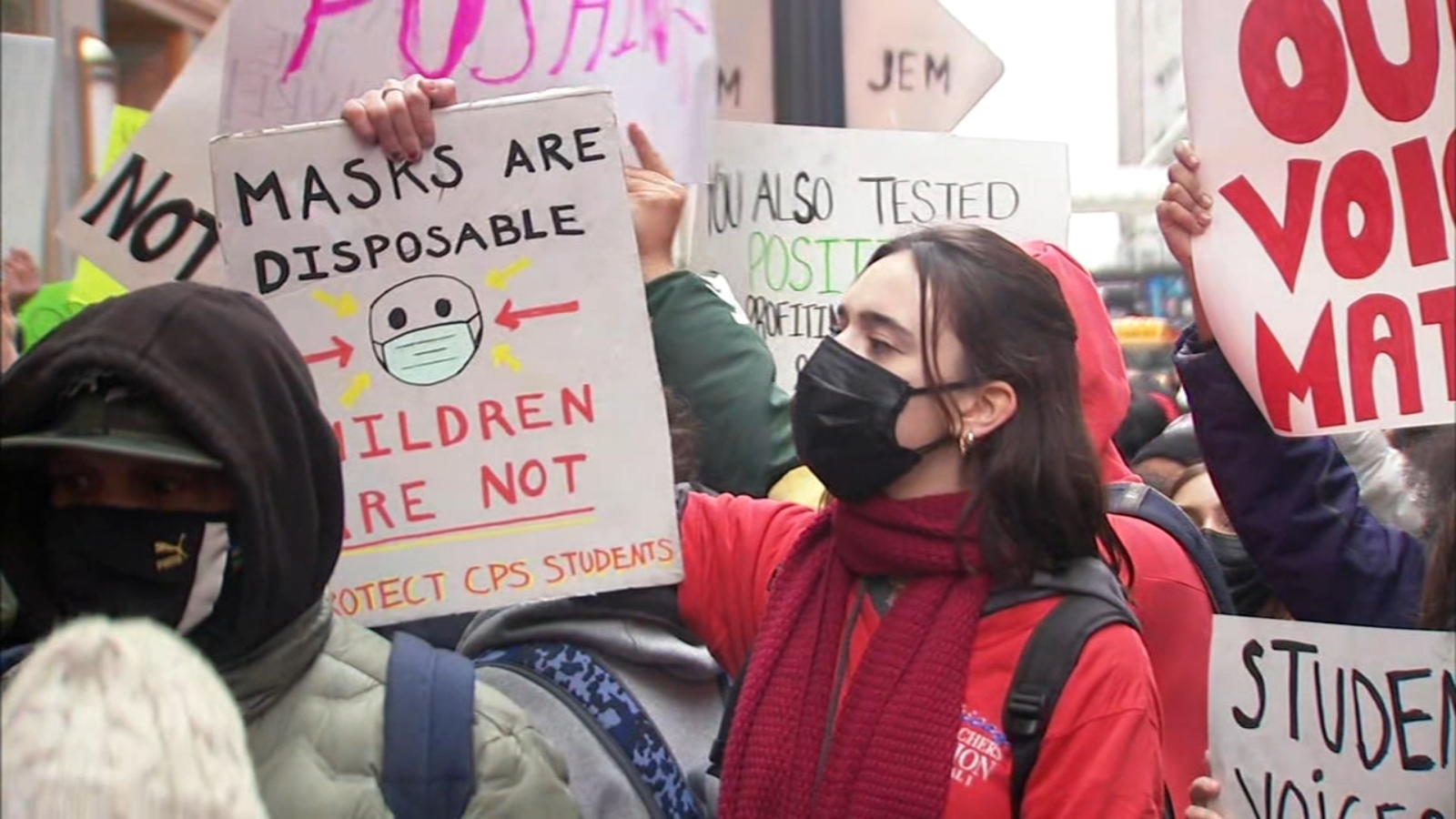In the major cities of New York, Chicago, and Boston, many schools have neglected to outline new safety measures in response to the Omicron surge. Shockingly, some institutions hosted no internal discussions at all.
And although young people have been continuously framed as the least likely to be severely harmed by contracting COVID, there remains a breadth unknown factors about the disease or the ways new variants are affecting us.
A quick Google search on Long Covid will show countless results for strange lingering symptoms. From chronic fatigue, problems concentrating, headaches, unreturned ability to smell or taste, joint pain, and tinnitus… the list goes on.
So instead of waiting for official bodies to reinforce campus policies on coronavirus safety measures, students began organising a movement using the tool they know best – group chats and social media – to collectively exit classrooms at their own accord.
In true Gen-Z fashion, students state-wide made their voices heard by organising outdoor protests against the continuation of in-person classes. They don’t want school to stop, they want the opportunity to learn remotely and safely.
Others worked together to propose their own strategies for how their health could be better safeguarded from the virus while on campus. These ranged from schools providing free masks for faculty and students, increasing rapid testing sites, and developing more outdoor eating spaces.
Some university bodies have been quick to enforce new coronavirus measures on the basis that the technology, tools, and knowledge are already in place to make learning from home possible. It’s true, this is no longer anyone’s first rodeo.
Harvard University has already announced it will be moving to online learning once again. Several others, including Northwestern University and Stanford University, have started the semester with remote learning and will monitor the situation as it unfolds.

Those learning in institutions refusing to revaluate measures due to the Omicron variant have come to believe that upholding in-person lessons is an obvious indication that their school prioritises the systems’ financial gain over their pupil’s health and overall wellbeing.
The excitement of returning to campus, reuniting with friends, and re-joining extracurriculars was cut short by Omicron and stifled by a reluctance from institutions to ensure this could continue safely in the midst of a new outbreak.
The student’s decision to walk out of classrooms has made a serious example of the power held by Gen-Z and their peers, whichever age group they might belong to.
Understandably, students are anxious, worried, frustrated, and sad about the way their education experience has panned out. A school walk-out organiser from Denver said, ‘You need to listen to us, because we’re the ones who are experiencing it. We’re the ones affected by it.’
Reading that powerful statement, it’s hard not to draw the parallels to other movements led by Gen-Z, more specifically the struggle to be heard on matters relating to climate change.
After two years of hanging in the balance, with their futures determined by outside factors and indecisive adults at every turn, taking the reins on this matter was something schools everywhere should have anticipated.
Gen-Z might be addicted to their phones, but you can’t argue they don’t know how to use them for good.























